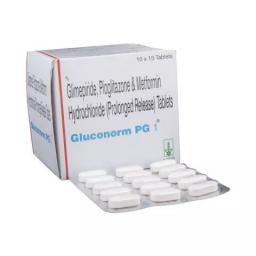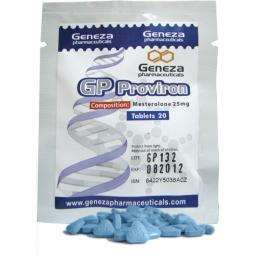Gynaecologist Dr Elizabeth Farrell answers your questions about periods.
1. Why is my period getting heavier as I get older?
We don’t always know why periods sometimes get heavier with age, but often no cause is found. In some women, the uterus seems to be bigger and the cavity enlarges as she ages, which may be due to ademomyosis, polyps or fibroids. Ademomyosis is a condition where the uterine lining cells (endometrium) grows inside the muscle of the uterus. Fibroids are benign tumours of the muscle of the uterus, which occasionally bulge into the uterine cavity causing heavy periods. Endometrial polyps are a thickening of the lining of the uterus that looks like a ‘teardrop’ of tissue. Very rarely heavy periods may be a sign of cancer of the endometrium.
2. Why am I suddenly flooding the bed – I’m 49?
See question 1 – see your doctor to diagnose the cause.
3. My periods are light. Will it affect my fertility?
Not if they are regular and monthly. Infrequent light periods, i.e. more than two months between periods, is outside the normal range and needs to be checked by your doctor.
4. What is the period you have when you’re taking the Pill, as it’s not a true period?
The period with the Pill is a withdrawal bleed. It is not a true period and occurs because of stopping the active hormone-containing pills.
5. I’m on the Pill. How will I know when I hit menopause?
You won’t know when menopause, i.e. the final period, occurs. The only way is to stop the Pill and see if your periods return. Some women do develop some symptoms such as flushes and sweating whilst they are still on the pill, which may be a sign of the perimenopausal change.
6. When are my periods going to stop?
There are no tests available yet to determine when the final menstrual period will occur. On average, menopause occurs between the ages of 48 and 53 years, but can be anywhere between 45 and 60 years.
7. I’m 45 and still have my period. Am I still fertile?
It is recommended to use contraception until 12 months after the final period. Fertility diminishes in the forties but there is still ovulation taking place until near menopause.
8. If I still have my period in my late 40s, does that mean I’m still ovulating?
Yes, you may be still ovulating, ether regularly or irregularly, until your periods stop.
9. If periods start off heavy when you are young does that mean they will be like that forever?
No, periods do not always stay the same. Sometimes they change after pregnancy and in some women diminish closer to the final period or menopause.
10. Does it mean anything if you start your period early … or late in life? What is the average start age?
In our society, menarche, or the first period, starts on average at about 12 to 13 years, but can be anytime between 10 and 17 years of age. If your periods have not started by 17 you should see your doctor to investigate why they have not started.
11. Why do you get clots? Are they bad?
Clots mean that your period bleeding is quite fast and heavy, making the blood clot. If the clots are large and frequent you should check with your doctor to exclude a cause.
12. Why does the colour of blood change over the days of the period?
The blood colour changes because usually the flow is heaviest in the first few days and then slows until finished. The colour may change from dark or bright red initially, to dark brown later in the cycle.
13. Why does the heaviness of flow change over the days?
The bleeding of the period occurs because the hormonal messages tell the uterus that there is no pregnancy to settle into the uterine lining. Then the lining detaches itself from the inside wall of the uterus exposing blood vessels which are initially open and bleeding. The bleeding is made up of blood, fluids and endometrial (or lining) cells. After a few days the lining detaches itself and the body starts to repair, the blood vessels close, the lining starts to grow again and the bleeding or period slows and stops. The process begins again and leads to another period in a month’s time.
14. Why do you get changes in bowel habits before and during your period?
The body makes substances called prostaglandins, especially just before, and in the first few days of, the period. These prostaglandins cause muscle contractions in internal organs and in combination with the hormonal pattern in the premenstrual week can cause changes in bowel habits. Some women notice a difficulty in opening bowels just prior to the period as if they are constipated, and then when the period starts the bowel becomes loose.
15. Is spotting/bleeding between periods normal?
No, it is not normal. There are many possible causes that depend on many factors, such as your age, what medications you are on, and whether the bleeding is associated with the other activities i.e. intercourse. Any bleeding between periods should be investigated by a doctor, particularly for postmenopausal women who are at higher risk of endometrial cancer.
16. If on the pill, are there any risks in skipping multiple periods?
There are no known risks, but you need to make sure you don’t miss any pills. Some women may experience spotting after prolonged use.
17. How long is my period supposed to last for?
A period is considered to be normal if it is not longer than about 8-10 days.
18. Is it normal to have a certain odour down there when I have my period?
Most women have some odour related to the bleeding, but little is known about why it is sometimes stronger. If the odour is offensive, then it’s best to see your doctor.
19. Why do I get sensitive, upset and angrier in the week prior to when my period is due?
In about 90 per cent of women there will be some premenstrual symptoms, but only in about 10 per cent will there be symptoms that cause an interference in being able to function normally. Exactly why this happens is not known but there seems to be some increased body sensititivity at this time which alters the chemicals in the brain and leads to many of these symptoms.
20. My daughter has had two periods, with a few months in between. When is she likely to get her next period?
It depends on her age. If she has just begun her periods it may take up to two years for the cycle to regulate itself. If the cycle remains irregular see your doctor for advice.
21. What does it mean if I skip a period? I know I’m not pregnant.
There are many reasons – usually because you haven’t ovulated in that cycle. This is more common in the first two years after menarche (when you first start your period) and in the years leading up to menopause. There can be other causes, such as stress, but if you keep skipping periods on a regular basis see your doctor.
22. Why would my periods have stopped altogether. I’m in my 30s.
There are a number of causes of secondary amenorrhoea (absence of periods) which need to be excluded. Included in the causes is early menopause, excessive weight loss and disorders of the pituitary gland in the brain. Pregnancy should also be checked for. See your doctor or a specialist clinic to make sure the cause is found.
23. How do I know if I need to see a doctor about my periods?
There are many reasons you may need to see your doctor about your periods including:
- Changes in the pattern of your period
- Increasingly heavy periods
- Prolongued periods of more than eight days
- Periods coming more frequently i.e. less than three weeks apart
- Infrequent periods coming more than 2-3 months apart
- Painful periods particularly when you have to stay home from work or school
- Bleeding between periods
- Bleeding after intercourse
24. My period pain is sometimes so bad that I feel faint. Is this normal?
No, please see your doctor.
25. Other than going on the Pill, how else can strong period pain be controlled?
Other medications can sometimes help period pain by stopping spasms of the uterine muscle. See your doctor for more information.
26. Is it normal to have period pain that keeps you in bed for a day or two each month?
No, please see your doctor.
27. Can constipation/diarrhoea be related to hormones and your period?
Yes – see question 14.
28. I have always had regular periods, but recently have begun spotting for a week or so before each one. What could be causing this?
There can be several reasons, including polyps of the endometrial line, pelvic infection or if on the Pill, this may need to be changed. This needs to be followed up by a doctor and some further tests done.
Top Steroid Products on Sale
Testo-E 500 (2ml)
|
Testoviron Depot 250
|
Ventolin 2 mg
|


